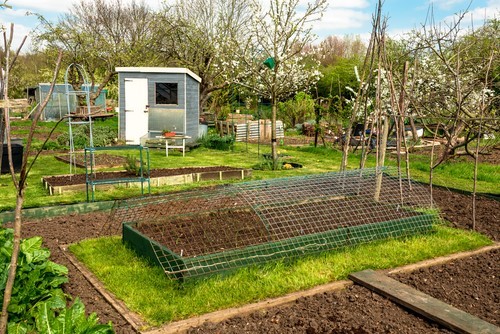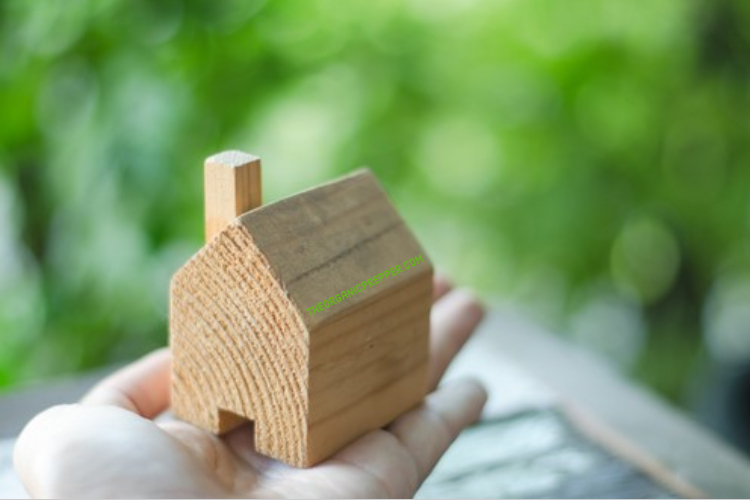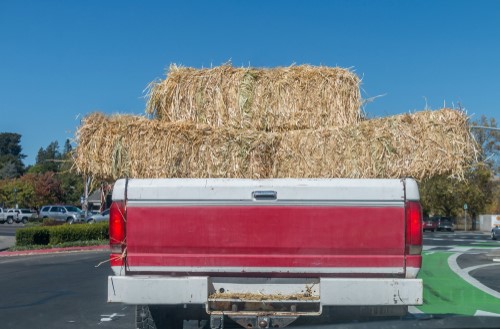If you're new here, you may want to subscribe to my RSS feed. Thanks for visiting!
by Will Ryan
If you’re looking to start your first off-grid homestead, try to keep your expectations in check. It could take years for you to create the ideal home in the middle of the wilderness. Things can easily take a turn for the worse, from rough weather to unexpected delays, even if you planned out every aspect of your new remote lifestyle.
Homesteading usually requires a lot of trial and error. If at first, you don’t succeed, try, try again. Homesteading is an integral part of our country’s history. Families would purchase large land plots for next to nothing as they attempted to build a life on the frontier.
Don’t let small mistakes ruin your dream of living off the grid. Use these tips to plan out the first year of your homestead and focus on taking things one step at a time.
Budget (with Plenty of Wiggle Room)

You should also include the cost of electricity, whether you generated it yourself or purchased it from your local utility company. Sustainable energy sources like solar, wind, and geothermal to reduce your expenses are excellent options.
Related: 5 Solar-Powered Items That Actually Make Sense to Keep Handy
Before you pack up and hit the road, go over your budget with a fine-toothed comb, and leave plenty of room for error. The $5,000 mentioned is a rather conservative estimate. You may need some emergency funds if your first crop fails, a major storm damages your house, or you can’t generate your own electricity.
Many homesteaders will maintain a source of income during the first few years. Here are a few ideas to pad your income:
- Work part-time from home
- Sell your fruits and vegetables to a local vendor
- Become a freelance handyman/woman
Whatever you choose to do for income shouldn’t take too much away from your homestead. But, it is nice to have some money coming in, so you don’t have to pinch every penny quite as hard.
Related: The Austerity Diaries-If You Don’t Have a Job Make One Up
Protect What You Have
Nothing will ruin your homesteading operation like broken equipment. Invest in protective liners and cases that will protect your gear for the foreseeable future.
Homesteading isn’t the same as working out of your garage. If you’re not careful, parts and tools could go missing. Others may start to rust or fall apart if you leave them out in the rain. Keep your tools and equipment organized and in their proper containers to keep your homestead going strong.
The biggest item on this list is your car or truck. If your vehicle kicks the bucket during your first year, you might have to hit the pause button on your homestead until you address this issue.
Many people will use their car to work the land, in addition to running errands, so it’s best to protect this item at all costs. Use a truck bed liner to protect it from excess moisture, dirt, snow, and other debris. Keeping the bed clean reduces the chances of rust and major electrical issues.
Getting your hands dirty may sound fun in theory, but not when you have dozens of items on your to-do list. Try to keep your work environment clean to increase efficiency. Use fender flares to stop mud from piling on your truck. You should be able to use your vehicle and work the land without making a mess.
Load Up on Supplies
Growing your food and creating a successful off-grid homestead takes time. It may take years for you to perfect your green thumb. It’s best to temper your expectations for your new garden. A slight error could leave you and your loved ones without food for months at a time.
Related: How to Grow a Survival Garden-And What to Do If It Dies
There’s no shame in stocking up on canned food and other non-perishable essentials. Make sure you have plenty to eat if your garden runs afoul. You can also partner with local farmers’ markets, grocery stores, and other vendors to load up on supplies.
Create a durable storage system to secure your food and supplies. Seal the storage area off from the elements to keep your food fresh. You will want to do this to eliminate strong odors to keep bears and wildlife at bay.
A refrigerator, stove, and oven will come in handy during your first years, especially if you’re not used to living off the land. As time goes on, you can start to phase store-bought food out of your diet, but don’t be afraid to hit the local grocery store until that day arrives.
Suggested Reading: Stockpile Cafe
Plan for the Worst
Homesteading means rolling with the punches. Things can easily take a turn for the worse when you’re living off the land. But that’s all a part of the fun. If homesteading were easy, it wouldn’t be as exciting.
Create a contingency plan in case things go wrong:
- Who can you call?
- Where can you go?
- How is your health? How is the health of your family?
- Have you kept in touch with your loved ones?
- Have you kept in touch with your network?
- Do you know who can help you solve problems as they arise?
It’s essential never to be afraid to ask for help.
Suggested Reading: Be Ready for Anything
Going off the grid and starting a new homestead can be a magical experience. But, it does take practice and determination. Keep these considerations in mind when planning your departure from the modern world. The more you prepare, the better off your new home will be.
About the Author
Will Ryan is Marketing Manager at Husky Liners. With a wealth of knowledge of and passion for restoring classic cars, off-roading and researching new car technologies, Will has proven time and time again to be a huge asset to the Husky Liners team. In his spare time, Will loves to spend time with his dog and fiancé.

















11 Responses
If you are not already a trained expert or professional, and you are doing it yourself, whatever the project, double the time it will take and maybe the expense it will cost.
I am NOT a woodworker/carpenter by profession. So, yes, I have to look at something and take a degree of time to figure out the right way to do something. An experienced carpenter would look at a project and figure it out in short order and in time and cost.
But dont be discouraged! With every project I do, I get a little bit better. I learn from my mistakes and failures. Can be frustrating at times.
I did not know a dang thing about raising hogs. But now I can raise a hog from piglet to slaughter weight and how to put one down, process it, and make my own bacon, sausage.
There were lessons to be learned at each step.
Same goes for just about anything from making bread, to scything hay, even making a fire.
Be realistic, but dont be discouraged.
Good start, definitely. If you can, find a copy of Carla Emery’s Encyclopedia of Country Living. While it doesn’t have all the answers, it’s still a wealth of information – it’ll show you how to cook beans starting with tilling the soil to plant them in. It also covers topics of animal care, gardening, larger scale farming, beekeeping basics, making your own items, and so many other topics it’s pointless to list them all. If you can’t find a hard copy I’ve seen it in PDF.
To add to RedBranch’s list:
Back to Basics, Gehring, 3rd edition,
The Self-Sufficient Life and How to Live It, Seymour
There are somethings I am do not have the equipment or the capital for the start up of that equipment, or the skill to do, like welding.
But I have a neighbor and good friend who has the equipment, the know how and can weld anything. I go to him.
It makes sense to me to move in this direction no matter if I carve a place the wilderness or not. With the DHS issuing another warning about an EMP, some or all of us, may be off-grid suddenly without notice.
The more do-it-yourself skill we have, the better off we’ll be in a grid-down situation. Even if we are not experts!
Thank you Will for your sage advice! Not only having equipment and knowing how to use it, but investing in maintaining equipment is crucial. Lots of food for thought.
We are in a rental but I’m growing as much as I can, yup lots of failure but some success too. I’ve started transitioning our diet now. Hope to be on our block mid next year. Which is going to be alot of hard work. But needs to be done. I’m sure there will be days when I question my choice but ultimately I’ll curse and suck it up. Great tips thanks !!
In addition to the author-listed issues…
Water quality: In many rural areas there is significant contamination of the water supply. Often it results from ammonium nitrate in agricultural fertilizer. Once the contamination is bad enough, it can be damaging to both new babies or pregnant women. Beyond that level, there comes a time when cancer is a real risk. So if you’re determined to move into such an area, assume that you will need a water cleaning method, whether reverse osmosis (RO), water distilling, or whatever. RO is what the EPA bullied my long ago hometown into installing, but out in the country you’re on your own. And off-grid water cleaning is another learning curve.
Water table level: Check the long term projections in your areas of interest to estimate how fast the water table is dropping as the aquifer is being depleted. You “might” be OK depending on your age, but the odds of your kids being able to benefit are probably less.
Quality of local internet access: The more rural, the less likely the major internet providers are willing to spend money to bring you the latest highest quality internet speeds — if that matters to some business you’re running.
Quality and availability of local medical care: Lots of rural hospital systems have shut their doors. Check out your areas of interest.
Quality of your neighbors: In consonance with an old Russian expression, “Don’t buy the house; Buy the neighborhood.” I’ve been through the drill where many of the neighbors were part of a religion that kept their ancient European prejudices against anyone else who was not part of their church. That intolerance carried over to shunning in the school system, avoidance in doing business, and of course any kind of socializing. You want to avoid such hateful cult behavior.
Quality of your real estate deal: If you run your property search through your run-of-the-mill realtor, you’ll likely get a referral to one of their mortgage broker buddies, which leads to an institutional loan with a stiff down payment and federally regulated foreclosure rules should you get into financial trouble. There is an alternative…
Some property sellers may like the idea (and tax benefits) of getting ongoing income from receiving your payments over the years directly — without the mega-institution taking their cut. But you have to learn how seller financing can work, and if there are any legal restrictions in the state of interest to you. One good primer was back in 1986 titled “No Down Payment Formulas,” by Ed Beckley, here:
https://www.amazon.com/s?k=No+down+payment+formulas%2C+Beckley&i=stripbooks&ref=nb_sb_noss
Don’t assume that your state of interest hasn’t changed their rules on seller financing since way back then. Investigate and compare. Example: some states have declared war on the time-tested method of lease-optioning a property. (That’s an excellent way to check out a property — and your abilities — for a few years to see if you really want to exercise that option to buy, and stay for the long term.)
About vehicle bed liners: My father used pickups and grain hauler trucks for decades. Except for rare use of a slide-in cattle or horse carrier for the pickup, never ever did he use or need a bed liner. When not in use, his trucks were always kept under a shed roof, and none of the deterioration problems listed above were ever a problem. Have the vehicle manufacturers today has gone el cheapo on their rust-proofing?
He also would never ever have considered using a car or truck to pull a plow or other gadgetry, etc, in his fields. Only his tractor (which I learned to drive at age 10) had the hydraulic hookup to control his implements.
Remember that while some 30% of families still lived on farms around 1930, today that’s dropped to somewhere between 1 and 2% — largely because the little guys can’t compete with crop yields against the mega-producers. So your best shot at some income will probably be something you’ve brought along with you — that’s already working.
Also, it might be worthwhile to dig up some back shows of “Homestead Rescue” to learn how countless newbies have tried homesteading and failed miserably — so you can avoid their mistakes. I think that show has been around for what, maybe six years or so?
–Lewis
This is a great list, Lewis.
Another thing to consider is the likelihood that property taxes will be raised more than normal in the state or locality into which you move. Even if you don’t have much income, governments can come after you for property tax.
Another factor is that we are moving into a grand solar minimum (Daisy wrote about this here: https://www.theorganicprepper.com/grand-solar-minimum/ ) that will limit growing seasons, especially in the northern states. Already this last year, our growing season (from last frost to first frost) was cut by 1month (2 weeks on each end). That’s a lot of produce we were not able to plant and then harvest. Greenhouses and LOTS of firewood will be necessary to survive in those conditions.
Dings, dents, and scratches give rust an “opening”. Vehicles that sit outside are at risk no matter how good the rust-proofing. Elements take their toll – sun, snow, sleet, hail, rain. Your vehicle could end up a mouse/rodent house on wheels. We’ve always had a bed liner even though the (few) trucks we’ve owned (purchased new) had a shell. And if you have to drive roads treated with road salt, getting the salt off the vehicle is a must.
We are 60+, so moving and starting over might be harder than for some. But we are considering it.
One thing to consider, as a back up, is what food/water resources are available in the surrounding area. I am talking what is growing right in your back yard. I was lucky enough to grow up in the country and could likely survive quite a while with only a shelter and my rifle.
Wherever you end up, get a book on local edibles. Also, make friends with someone that has lived there most of their life and may already know some of this.
wish I could go off the grid!!! husband wont agree, thinks its silly, too spoiled, and nothing’s gonna happen that we cant handle right where we are….lmao…if it wasnt for me stockpiling things before I even married him (thanks to teaching from my dad), he wouldnt have anything in reserve…..shouldve kept my wv house, but being older, needed to get to a little warmer place, old bones dont take cold anymore…so……I do what I can regardless…
With the world industry in a minimum, I find my best chance for the time being is coming back to Venez. Things in all of South America are hard. The Covid has had bad effects in the economy all over the continent.
If I can manage myself to get some sustent out of my quite small patch of land, and all of the side activities I´ve identified as a potential small home-based business I´m sure you can do it too.
Just don´t allow yourself to get distracted. I´ve already been (almost) off-grid for weeks, and my health improved greatly. Lost weight, my energy surged fastly and even my focus and concentration capability was much better.
I´d say, plan properly, and go for it.